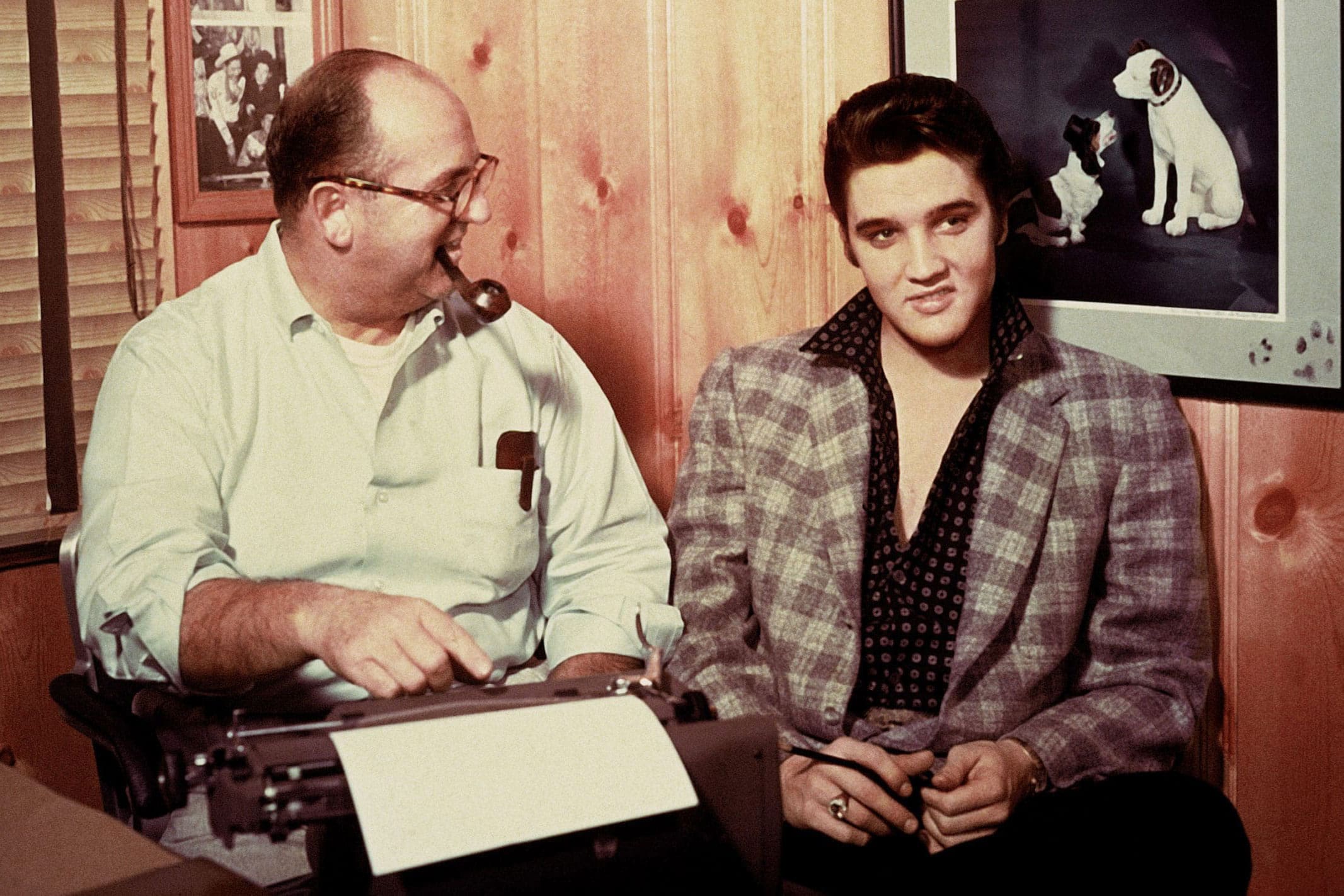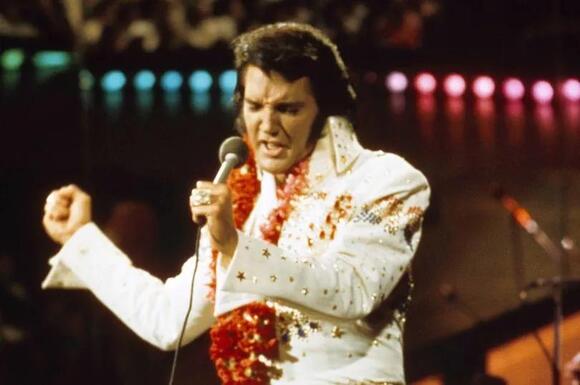For generations, fans across the globe wondered: why did Elvis Presley — the King of Rock and Roll, a man whose voice and charisma conquered the world — never perform outside of the United States? His music traveled oceans, yet he himself never stepped onto the international stages that begged for him. Theories ranged from stage fright to fear of flying, but the truth, uncovered only decades after his untimely death in 1977, is far more shocking — and heartbreaking.
The revelation centers not on Elvis himself, but on his domineering manager, Colonel Tom Parker. To the world, Parker was the mastermind behind Presley’s meteoric rise, the steady hand guiding his every career move. But behind his blustery persona and flashy cigar smoke lay a secret so explosive it reshaped music history: Parker was not an American citizen at all. He was 𝐛𝐨𝐫𝐧 Andreas van Kuijk in the Netherlands — an undocumented immigrant who had slipped into the U.S. without papers. Without a passport, Parker could not leave the country. And because he couldn’t go abroad, neither could Elvis.
For decades, Parker shielded his deception with convenient excuses. He told studios that domestic tours were more profitable, that Hollywood filming schedules left no time for overseas shows, that Las Vegas residencies gave Elvis the exposure he needed. But beneath the polished spin was fear — fear that if he left U.S. soil, his undocumented status would be exposed and his entire empire would collapse. So he caged the King of Rock and Roll inside America’s borders, denying millions of fans across Europe, Asia, and beyond the chance to see their idol live.
The irony is devastating. Elvis, a man whose music symbolized freedom and rebellion, was trapped by the secrecy of another. His voice reached every corner of the world, yet his physical presence was withheld, leaving generations with only vinyl records and movie screens to experience him. Unlike contemporaries such as The Beatles or Frank Sinatra, who sparked global frenzies with international tours, Elvis was confined, his potential for world-shaking live performances forever unrealized.
The cost was staggering — not only for the fans but for Elvis himself. Touring abroad could have reignited his career during his later years, provided new creative energy, and even helped him escape the grueling Vegas routine that eventually drained him. Instead, Parker’s grip and paranoia tightened until Elvis’s final days, transforming a career that could have gone global into one that remained tragically provincial.
Now, with the truth laid bare, history must reckon with what was lost. The King never stood on a London stage. He never electrified Tokyo. He never heard the screams of fans in Rio or Paris. The dream of Elvis live on the world stage died before it ever began — not because Elvis lacked the will, but because his manager’s secret held him captive.
Today, the story stands as one of the greatest “what-ifs” in music history. Fans still wonder how different Elvis’s legacy might have been if Parker hadn’t chained him to American soil. Would he have become even bigger than he already was? Could international tours have rewritten his final chapters? Those questions will forever linger, as haunting as his voice.
✨ Elvis Presley’s music transcended borders, but his body never crossed them. And now we know why: the King of Rock and Roll was grounded, not by choice, but by a manager’s hidden past.
\






